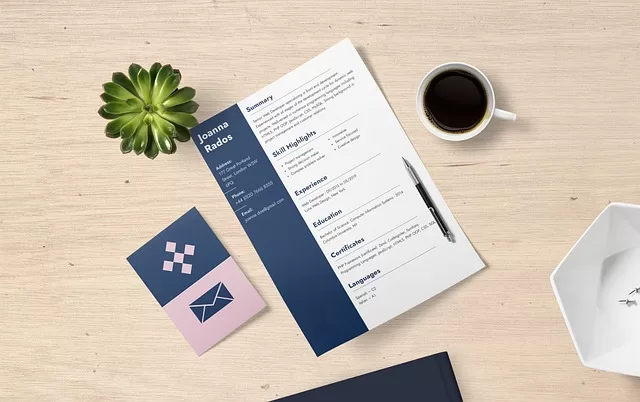Key Highlights
- Imagine pouring your heart and soul into crafting the perfect job application, only to have it rejected before you even get a chance to showcase your skills.
- By following these tips and using the provided example as a guide, you can ensure your CV puts your best foot forward and increases your chances of securing that coveted interview.
- A good tip to see if there’s a spelling or grammatical mistake is to temporarily change the font, size and colour – it can trick your brain into thinking it’s a new piece of writing, enabling you to spot mistakes you might have previously missed.
Avoid These Common CV Mistakes
Imagine pouring your heart and soul into crafting the perfect job application, only to have it rejected before you even get a chance to showcase your skills. Unfortunately, this happens more often than you might think, and the culprit? Common, yet avoidable, CV mistakes.
While most of us have a general understanding of CV writing, surprisingly simple errors can slip through the cracks. These seemingly minor oversights can have a major impact on your application’s success. To help you avoid such pitfalls, we’ve compiled a list of the six most common CV mistakes, along with actionable tips to steer clear of them. Additionally, we’ve included a sample professional CV to serve as a helpful reference.
By following these tips and using the provided example as a guide, you can ensure your CV puts your best foot forward and increases your chances of securing that coveted interview.
1. Poor Formatting
CVs that aren’t clear and easy to read are a huge turn-off for employers. On average employers spend around ten seconds reviewing each CV – leaving you little time to make a good first impression.
When thinking about how to format your CV bear this in mind and ensure that recruiters can find the most relevant information as easily as possible.
‘The formatting of your CV forms the recruiter’s first impression of your application, so if it isn’t good, then they start thinking that you aren’t very good.
“However strong the content is, it’s difficult to win someone round from there”.
It’s important to keep your CV concise so that it can be absorbed quickly. The template that you choose to follow when composing your CV should be striking yet uncluttered. Ensure your font is consistent and that your text size is not too big or small.
“We recommend a clean, modern font such as Ariel or Calibri, and font size 10-12.”
You should prioritise the content rather than choosing style over substance. Rating your hard or technical skills using stars or bars might look nice, but does this demonstrate your competency in these areas?
‘Keep your formatting simple and consistent, and you are less likely to make a mistake,’
2. Spelling Errors
There are no excuses for spelling mistakes – even if English isn’t your first language. An error-free CV is vital in showcasing your precision and attention to detail, so check everything – even your contact details. Make use of spell-checking functions in software such as Microsoft Word. Pay attention to what they are indicating and consider if the alternatives they offer will add or remove impact to your writing.
Minimise the risk of making mistakes by taking your time – never leave writing your CV to the last minute. Rushed examples are easily spotted and quickly dismissed.
It’s also a good idea to check your tenses. If you update your CV regularly tenses can sometimes get mixed up and not amended to the current situation. Is the experience you’re writing about happening currently or is it a past role that you’re describing? Ensure you’re using the correct current or past tense.
A good tip to see if there’s a spelling or grammatical mistake is to temporarily change the font, size and colour – it can trick your brain into thinking it’s a new piece of writing, enabling you to spot mistakes you might have previously missed.
Setting your application aside when you’ve finished it ‘for a few hours, or better still a full day, then re-read it again with fresh eyes. You’ll pick up lots of improvements that way.’
Other handy tips include printing your CV and reading it aloud – this will slow down your thought process, allowing you to focus on specific words. If you fall over clumsy sentences, others will too. To further ensure you don’t miss anything read your CV from bottom to top. This makes the flow less familiar making it easier to pick up mistakes.
3. Don’t Be Tempted to Fabricate: Honesty is Key
While it might be tempting to exaggerate your qualifications or experience to land an interview, resisting the urge to fabricate is crucial. Remember, employers can easily verify the information on your CV, so never assume they won’t check. Inflating your grades, claiming false education, or lying about your work history will ultimately backfire. In the best-case scenario, your deception will be exposed, leading to an immediate rejection. In the worst case, you may even get caught during an interview, unable to answer questions about your fabricated experience. Building a career on honesty and integrity is always the strongest foundation for success.
‘It’s good to be confident when applying for jobs, to be positive about the skills and experience that you have and to present these in the most dynamic way possible, but outright lying is a definite no,’
Instead of using your time and energy to concoct half-truths and complete fabrications, use it instead to sell the qualifications, skills and experience you do have.
4. Lack of Evidence
It’s easy to make generic, empty statements on your CV when you’re trying to meet a tight application deadline. However, failing to effectively evidence your skills, achievements and experiences can be a big mistake.
You need to back up how you meet the requirements because without this information an employer can’t be confident that you’re able to do the job effectively.
It’s easy to say that you have a skill, but evidence equals believability, and you need to be believed. Giving evidence also adds more richness to the claim, by giving context you are showing so much more about yourself, and it’s that rounded version of you that you want the recruiter to see.
Don’t just focus on the things you did, but also on the things you achieved. At the entry-level, chances are a lot of your previous experience was temporary, voluntary or part-time, with duties that might include ‘filing and data entry’. You want to point out ways that you took those duties and went above and beyond to make a difference. For example, the above might be ‘kept the office running smoothly with quick data entry’.
Anyone can write on their CV that they have problem-solving skills and can remain calm under pressure. To make your CV stand out you need to back up these claims with evidence, e.g., ‘Remained calm under pressure when answering telephone queries from up to 100 customers a day when working on the customer complaints line. This proves to the recruiter that you have the skills they are looking for and demonstrates how your previous experience is relevant.
5. Not Explaining ‘Why’
It isn’t enough to just state your credentials; you need to prove them by justifying why you’ve chosen to undertake certain activities regarding your personal and professional development. You should then elaborate even further on the resulting skills you’ve gained.
For example, discussing your extra-curricular activities is very important – providing you pay particular attention to any positions of responsibility you’ve held and outline what you’ve taken from the experience.
As a rule, average CVs give you the ‘what’ – for example, the degrees or jobs that person has held. Great CVs also give the ‘whys’ – for example, why that person has chosen that degree or society.
6. Ignoring Gaps in Your Work History
Gaps in employment history are fairly common and rarely a problem as long as they’re explained.
You don’t need to worry about gaps of a couple of weeks but if you’ve been out of work for months (or even years) you need to clearly and concisely explain why. Any unexplained absences of this length will be looked upon with suspicion by potential employers and will give the impression that you’ve been idle during this time.
There’s also no shame in informing employers of a period spent away from work due to an illness, medical condition or redundancy.
You’ll be able to further explain any gaps in your work history in your cover letter.
Discover how you can create a professional CV using Kazicloud Free Resume Builder. As promised, here is a sample professional CV created by Kazicloud CV builder… Go ahead, download it here [download id=”9523″]






